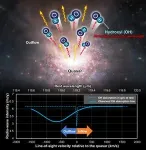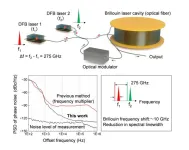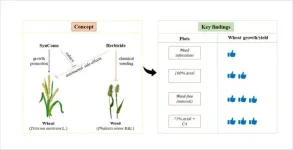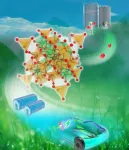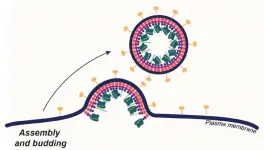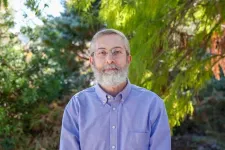(Press-News.org) Our energy systems are undergoing rapid change. Many households are generating electricity with solar panels, and there are new sources of demand and storage, such as charging electric vehicles and home batteries. Local prosumers (energy consumers who also generate and store energy) are taking control of their own energy supply. This development is prompting the creation of energy communities and micro-grids, such as the SchoonSchip community in the north of Amsterdam.
Energy communities allow consumers to generate, use and trade energy locally. In this way, they are no longer dependent on large energy suppliers. By bringing energy generation closer to where it is needed, these communities also help to alleviate grid congestion, which is a growing challenge for grid operators.
Unanswered questions
There are two main models for energy communities. In the first, prosumers individually control their own energy resources and then trade with each other. In the other model, multiple prosumers share and jointly control energy resources, such as wind turbines, solar panels or community-owned batteries. In both models, distributed AI techniques are often used to automate and optimize peer-to-peer (P2P) exchanges.
Yet these models raise many unanswered questions: how do you honestly share the costs and benefits of generating energy from shared assets? Other important questions are: how many prosumers need to be involved to make P2P trading economically viable, and what are the various reasons for people with different energy consumption needs to participate in such projects?
Large-scale real data
A recent study, to be published in Applied Energy on 1 February 2024, aims to shed light on some of these key questions. The researchers used large-scale real data from the UK. Co-author Valentin Robu, a researcher at CWI and TU Eindhoven, explains: "The focus of our study was on the marginal benefits of peer-to-peer energy exchange contracts, using a method of measurement known as 'Gains from Trade'. We found that as the number of peer-to-peer energy contracts increases and more prosumers enter the market, diversity in consumption profiles quickly decreases, leading to significantly diminishing returns. This means that most of the Gains from Trade from an energy community can be achieved if only a fraction of the community members participate. Especially those members with the most different demand profiles from other community members."
"Our study also explores how an AI technique called multi-agent systems can be used to automate and optimize P2P negotiations so that both parties benefit from the energy exchange."
Collaboration
The study was the result of a collaboration between researchers at CWI (the National Research Institute for Mathematics & Computer Science in Amsterdam), Delft University of Technology & Eindhoven University of Technology in the Netherlands, together with researchers at University of Glasgow (UK) and Princeton University (USA). It was part of the Marie Curie TESTBED-2 project, funded by the European Union, under the Marie Curie Staff Exchange Programme (MSCA-RISE).
The paper is published open access (free of charge) in the Elsevier Applied Energy journal: https://www.sciencedirect.com/science/article/pii/S0306261923015374.
END
Trading between households in smart energy communities: the more the merrier?
Recently published study sheds light on key questions about energy trading in local communities
2024-02-01
ELSE PRESS RELEASES FROM THIS DATE:
Tidal landscapes a greater carbon sink than previously thought
2024-02-01
Mangroves and saltmarshes sequester large amounts of carbon, mitigating the greenhouse effect. New research from the University of Gothenburg shows that these environments are perhaps twice as effective as previously thought.
Natural habitats flooded by the tide form ecosystems that captures large amounts of carbon, which can help to mitigate climate change. Carbon dioxide is stored in the biomass and in the muddy soils. Therefore, several governments have launched blue carbon market initiatives to encourage landowners to restore and preserve mangrove and saltmarsh ecosystems, similar to the rainforest.
Large ...
Relocated songbirds can successfully learn the diversity of song they need to survive
2024-02-01
Nestling songbirds relocated as part of conservation programmes successfully learn the song repertoires they need to communicate – and ultimately survive – in the wild, a new study has found.
The research, published in the journal Conservation Science and Practice, is the first to follow translocated songbird chicks over time to assess their song development.
It focused on populations of cirl buntings (Emberiza cirlus), taken from a number of sites in Devon before being hand-reared and then reintroduced in Cornwall as part of a major programme co-ordinated ...
Understanding rapid weight loss in older women: Message from the heart
2024-02-01
Unexplained rapid weight loss in older people could be a sign of underlying disease and can be linked with increased risk of falls and fractures, as well as a poorer long-term prognosis.
The understanding of factors that could contribute to rapid weight loss remains poor, with current treatments including correcting suboptimal dietary and physical activity behaviors.
New research by Edith Cowan University (ECU) Postdoctoral Research Fellow Dr Cassandra Smith noted that abdominal aortic calcification (AAC), a marker of advanced blood vessel disease, was linked to higher risk of rapid weight ...
Photonics-based wireless link breaks speed records for data transmission
2024-02-01
Osaka, Japan – From coffee-shop customers who connect their laptop to the local Wi-Fi network to remote weather monitoring stations in the Antarctic, wireless communication is an essential part of modern life. Researchers worldwide are currently working on the next evolution of communication networks, called “beyond 5G” or 6G networks. To enable the near-instantaneous communication needed for applications like augmented reality or the remote control of surgical robots, ultra-high data speeds will be needed on ...
Field weed control: Synthetic communities slash herbicide use
2024-02-01
Synthetic microbial communities (SynComs) are emerging as powerful allies in the battle against weeds. These carefully crafted assemblies of microorganisms, such as compatible Pseudomonas strains, are designed to target specific weeds while promoting crop growth. The application of herbicides with SynComs will be essential to understand their synergistic effects for controlling weed and promoting wheat growth, so that provides a sustainable and eco-friendly weed control strategy. By harnessing the collective strength of Pseudomonas SynComs, this research brings us ...
Powering the future: New material developed for better supercapacitor applications
2024-02-01
Supercapacitors, also known as ultracapacitors or electric double-layer capacitors (EDLCs), are advanced energy storage devices with unique characteristics. Unlike traditional batteries, supercapacitors store energy through the electrostatic separation of charges at the interface between an electrolyte and a high-surface-area electrode. This mechanism allows for rapid energy storage and release, enabling supercapacitors to deliver high power bursts and exhibit exceptional cycle life.
Supercapacitors play a pivotal role in the realm of renewable energy and environmental conservation. In the context of renewable energy, supercapacitors serve as crucial components ...
Highly targeted CRISPR delivery system advances gene editing in living animals
2024-02-01
Most approved gene therapies today, including those involving CRISPR-Cas9, work their magic on cells removed from the body, after which the edited cells are returned to the patient.
This technique is ideal for targeting blood cells and is currently the method employed in newly approved CRISPR gene therapies for blood diseases like sickle cell anemia, in which edited blood cells are reinfused in patients after their bone marrow has been destroyed by chemotherapy.
A new, precision-targeted delivery method for CRISPR-Cas9, published Jan. 11 in the journal Nature Biotechnology, enables gene editing on very specific subsets of cells while still in the body — ...
The Lancet Public Health: Transgender, non-binary, and gender diverse people more likely to have a long-term mental health condition, first England-wide study suggests
2024-02-01
Study of 1.5 million people over the age of 16 in England, including nearly 8,000 transgender people, finds a higher proportion of transgender adults report having a long-term mental health condition than cisgender adults.
Additionally, those with a gender identity other than cisgender male or cisgender female were more likely to report their mental health needs were unmet at their last general practice appointment.
Authors call for the NHS to become more gender-inclusive, including by introducing better training for health-care professionals to improve their ability ...
UT extension specialist selected to coordinate national network
2024-02-01
A University of Tennessee Extension specialist has been selected to help lead a new national effort to connect resources and individuals in the quickly evolving food and agriculture career sector.
Clint Cummings, Extension specialist in the Department of Family and Consumer Sciences, will serve as the National Network Lead and Regional Network Coordinator for the Southern Region for the new AgriProspects Workforce Development Network project. This project is being conducted through the Extension Foundation in collaboration with the ECOP (Extension Committee on Organization and Policy) Economic & Workforce Development Program Action Team and NECIW (National Extension ...
Pacific nations tax unhealthy foods to tackle NCD crisis
2024-02-01
Pacific Island governments are increasingly imposing taxes on unhealthy foods as they battle a non-communicable disease crisis, a New Zealand study shows.
The research, led by the University of Otago, Wellington, found that since 2000, a quarter of the 22 Pacific Island countries and territories studied had introduced taxes targeting unhealthy foods, a strategy in line with recommendations from the World Health Organization.
The study of food taxation policies over the 20 years to 2020 is published in the international journal Public Health Nutrition.
Senior Research Fellow, ...
LAST 30 PRESS RELEASES:
A genetic brake that forms our muscles
CHEST announces first class of certified critical care advanced practice providers awarded CCAPP Designation
Jeonbuk National University researchers develop an innovative prussian-blue based electrode for effective and efficient cesium removal
Self-organization of cell-sized chiral rotating actin rings driven by a chiral myosin
Report: US history polarizes generations, but has potential to unite
Tiny bubbles, big breakthrough: Cracking cancer’s “fortress”
A biological material that becomes stronger when wet could replace plastics
Glacial feast: Seals caught closer to glaciers had fuller stomachs
Get the picture? High-tech, low-cost lens focuses on global consumer markets
Antimicrobial resistance in foodborne bacteria remains a public health concern in Europe
Safer batteries for storing energy at massive scale
How can you rescue a “kidnapped” robot? A new AI system helps the robot regain its sense of location in dynamic, ever-changing environments
Brainwaves of mothers and children synchronize when playing together – even in an acquired language
A holiday to better recovery
Cal Poly’s fifth Climate Solutions Now conference to take place Feb. 23-27
Mask-wearing during COVID-19 linked to reduced air pollution–triggered heart attack risk in Japan
Achieving cross-coupling reactions of fatty amide reduction radicals via iridium-photorelay catalysis and other strategies
Shorter may be sweeter: Study finds 15-second health ads can curb junk food cravings
Family relationships identified in Stone Age graves on Gotland
Effectiveness of exercise to ease osteoarthritis symptoms likely minimal and transient
Cost of copper must rise double to meet basic copper needs
A gel for wounds that won’t heal
Iron, carbon, and the art of toxic cleanup
Organic soil amendments work together to help sandy soils hold water longer, study finds
Hidden carbon in mangrove soils may play a larger role in climate regulation than previously thought
Weight-loss wonder pills prompt scrutiny of key ingredient
Nonprofit leader Diane Dodge to receive 2026 Penn Nursing Renfield Foundation Award for Global Women’s Health
Maternal smoking during pregnancy may be linked to higher blood pressure in children, NIH study finds
New Lund model aims to shorten the path to life-saving cell and gene therapies
Researchers create ultra-stretchable, liquid-repellent materials via laser ablation
[Press-News.org] Trading between households in smart energy communities: the more the merrier?Recently published study sheds light on key questions about energy trading in local communities


